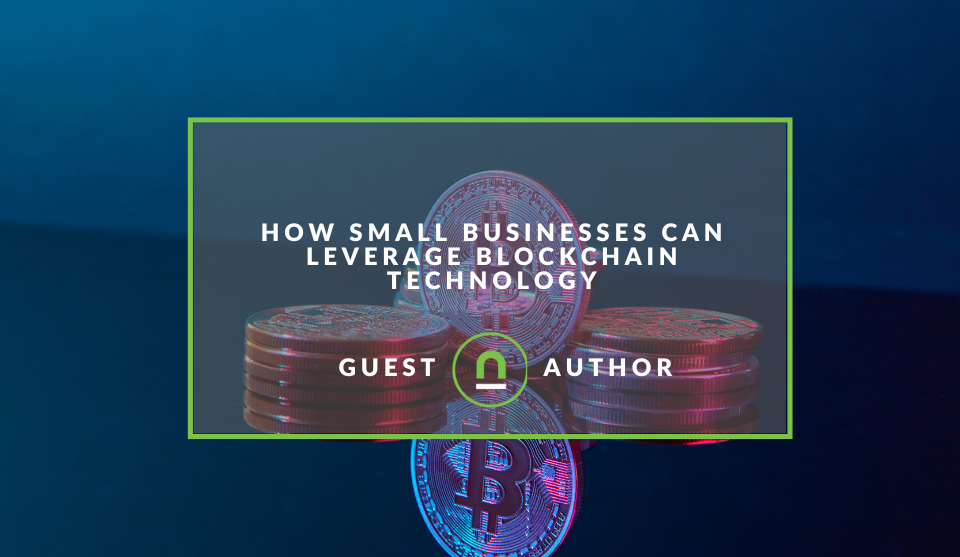Recent posts

Geek Chic
How to Replace A Broken Lenovo Laptop Screen
24 April 2025

Money Talks
Everything You Need to Know About SASSA Status Check
13 April 2025

Mind, Body & Soul
The Genetic Diversity of Cannabis Seeds
12 April 2025

Money Talks
How Small Businesses Can Leverage Blockchain Technology
02 April 2025
Popular posts
Extravaganza
Trending Music Hashtags To Get Your Posts Noticed
24 August 2018
Geek Chic
How To Fix iPhone/iPad Only Charging In Certain Positions
05 July 2020
Extravaganza
Trending Wedding Hashtags To Get Your Posts Noticed
18 September 2018
Money Talks
How To Find Coupons & Vouchers Online In South Africa
28 March 2019
SEO Spam Emails - Can We Put A Stop To This?
23 July 2018 | 0 comments | Posted by Che Kohler in nichemarket Advice
Ah, SEO or Search Engine Optimisation if you really want to impress your friends and family has gone through the best of times and the worst of times, but its safe to say its an industry that won't up and leave any time soon. Having been an SEO for the last few years, I've had to answer for many things that came before me, namely:
- What is the value of SEO?
- What makes us different from the last SEO company?
- Can't I just buy SEO traffic from Google directly?
- Why does it take so long?
- When will I rank for "Cheesecakes "*Insert location*"?
These questions all have merit, and I can understand where the person asking it is coming from and their particular understanding or interpretation of what search engines do. Its an understanding which we as SEO's simply do not see anymore and often take for granted and can lead to miscommunication and frustration.
While I'm pretty happy to navigate through these questions to win over your heart and make businesses believe in SEO there is one SEO practice I simply cannot stomach, and that is the SEO spam email.
I've been getting these emails more often of late, and I thought it was time to break the silence on it.
The origin of the SEO spammer email?
If you have an active website with a listed email address on social media, your site or other syndicated mentions chances are pretty high that you would at least have received one unsolicited SEO service email.
At this point, it doesn’t matter who you are you are, it's a mass blast out you can’t escape from, and those spam filters cannot always protect your inbox from them.
This completely goes against the essence of digital marketing which is the fundamental principle is to target the correct people at the correct time with the correct message as often as possible, so sin #1.
Naturally, as an SEO agency, we find it rather funny when we receive unsolicited emails from clueless individuals suggesting that our website is not doing its job. We laugh it off and get on with our day – but we get emails from our clients all the time.
They very often say things like, “I thought you were taking care of this” or “Why is my site not doing well?” This is sin #2 and does not sit well with me.
How do SEO Spammers get my address?
If I were a legitimate agency looking for leads I could search for popular terms, see who ranks on page 2 and offer them our services and many business owners who receive these emails think that is the case, but sadly it is not someone who cares about your business and wants to help. These spammers use a range of tactics to get your email address:
- Spammers will illegally buy lists of real people’s email addresses from unscrupulous list vendors.
- Spammers will use “harvesting” programs like bots or scrappers – that scour the Internet and copy any text that contains the “@” character. So if your email address appears anywhere, it is going to get harvested.
- Spammers will use “dictionary” (brute force) programs like hackers.
- You could and unwittingly volunteered your email address to dishonest subscribe/unsubscribe online services.
Whichever way they got it, trust me it wasn't one that comes with good intentions by any stretch of the imagination.
So Should I Trust What The Email Says?
Now that they have your email address, they'll pop it into a mail client and start mass emailing the living daylights out of this list and see how man responses they get. A word of warning to any businesses out there, don’t fall for it! It’s a no-brainer really; a reputable company doesn’t need to send these emails fishing for work.
Warning flags
They often make unrealistic promises like
- “Guaranteed Rank No.1 In Google”.
- "We will rank you No. 1 for your top 5 keywords."
- "Improve your rankings in 1 week."
- "Get five links a month guaranteed."
Sound too good to be true? That's because it is. Nothing in life is guaranteed, and especially not the number one spot on Google. If you do make it past the heading you are often greeted with a pretty generic pitch: lousy spelling, lazy English, poor formatting and jazzy “eye-catching” colours.
Also if the mail comes from a Gmail or Hotmail address, this should also be ringing all sorts of alarm bells!
At times they will provide you with a link to their mock-up agency website, and I encourage you to check it out. Evaluate their online presence such as social media and contact their clients listed on the site and see if they're legitimately creating value for clients. Key things to look for with a reputable SEO firm include:
- Found on Google with reviews.
- They can provide you with references.
- The email address used has the same domain as their website.
- They offer training, seminars, or valuable information.
- They are highly recommended and have a strong portfolio.
Should you respond to SEO Spam emails?
The best course of action when receiving these emails is no response at all. If you respond, the sender will keep fishing as long as you keep responding. The best response is to block spam comments on your website and to use spam blockers and filters in your email. However, no matter how well established your website is you will still get spam emails trickling in from time to time.
We often respond to them just to fish out more information and then flag their social media profiles (mostly LinkedIn) or post about their below board activity right on their pages.
What are the risks?
In most cases, you get no uplift in traffic for your spend and in the worst case scenario is you give them access to our website, and they cause damage that that takes some time to recover from, this can range from hacked sites to being penalised and deleted from Google.
Even Google legends aren't safe
If you thought
Why aren't SEO spam emails as harmless as they may seem?
While I've made
They burn relationships with businesses and reduce SEO to an afterthought or a nice to have rather than the necessity it actually is for many companies.
To protect yourself, remember that if it sounds too good to be true, it probably is. So do your homework before hiring any SEO firm.
Contact us
If you want to know more about SEO and content marketing, then don’t be shy we’re happy to assist. Simply contact us here
You might also like
How to Replace A Broken Lenovo Laptop Screen
24 April 2025
Posted by Bethany Lawrance in Geek Chic
Replacing a broken Lenovo laptop screen is easier than you think! Our step-by-step guide walks you through the process. Save money and DIY!
Read moreThe Role of Customer Service in Selecting a Forex Broker
29 March 2025
Posted by Cornelia Ekong in Money Talks
Discover why excellent customer service is crucial when choosing a Forex broker, and learn how to evaluate support quality before committing your cap...
Read more{{comment.sUserName}}
{{comment.iDayLastEdit}} day ago
{{comment.iDayLastEdit}} days ago
 {{blogcategory.sCategoryName}}
{{blogcategory.sCategoryName}}

